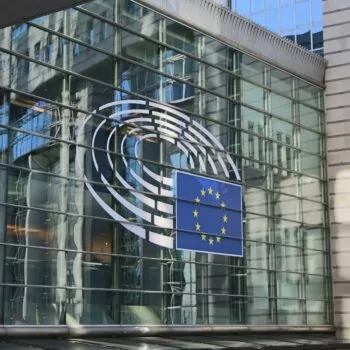Europe’s long-awaited legislation for Sustainable Corporate Governance aims to support long-term value creation for companies and corporations. Postponed three times already, it promises to be a battleground for different interests including industry incumbents and climate ambition supporters.
For Europe’s time-bound climate neutrality targets, businesses’ transition and commitments are becoming a crucial part of the carbon-neutral equation. The EU’s corporate governance framework is pressingly calling for enhanced traceability, transparency, and accountability of companies’ operations fit for the not-so-distant future. The hopes and stakes for the new rules are high.
The Sustainable Corporate Governance proposal is expected to tackle companies’ accountability at two levels:
- Accountability across the supply chain – introducing due diligence rules on sustainability and human rights to safeguard against adverse impact on society and the environment.
- Accountability of executives to stakeholders – tightening directors’ duties and obligations in order to reflect long-term strategic goals and stakeholders’ preferences.
Requirements for planning, target-setting and due diligence will be essential to the private sector’s role in delivering the Green Deal and a sustainable future. Will the EU deliver high-standard rules, or will it succumb to moderating pressure from some companies and Member States?
Ensure robust due diligence on sustainability and human rights
The new Sustainable Corporate Governance legislation should require companies to do due diligence around their plans and investments, adopting the ‘double materiality’, assessing and mitigating the risks for the company but also potential environmental and societal risks stemming from the company’s operations. While human rights and environmental criteria could be very different in terms of scientific data and granularity, minimum safeguards and verification mechanisms need to be in place. Additionally, effective governance and oversight of the process should be ensured both internally and externally.
The scope of companies to be impacted by the proposal should be consistent with the scope of the Corporate Sustainability Reporting Directive, i.e. companies with over 250 full-time employees. While corporate responsibility requirements should be proportional to the extent of the company’s impacts and its ability to mitigate these impacts, small and medium-sized enterprises operating in high-risk sectors should still be required to undertake due diligence. Germany has advocated a more limited scope, which aligns with the domestic supply chain law (companies with more than 3,000 employees in 2023 and more than 1,000 from 2024) however such a scope reduction would lead to inconsistent approaches across European files, weakening the market signal and reducing the market ability to track and trace sustainability impacts.
Go beyond disclosure to focus on targets and plans
Disclosure and transparency, while crucial, are only the first step in businesses’ role in supporting Europe’s transition and need to be coupled with actions towards long-term objectives. Additional measures in the Sustainable Corporate Governance to drive change could include:
- Mandatory transition plans to ensure traceability and monitoring against concrete targets.
- Aligning incentives and remuneration of executive staff with achieving corporate sustainability targets
Short-term focus can hamper the investments needed for transition and negatively affect the company’s long-term value creation. In the context of Europe’s Climate Law, it is no longer sufficient for firms’ climate transition planning to be done on a voluntary basis. Mandatory sustainability strategies and transition plans are needed to achieve science-based climate neutrality targets. Following the UK example of introducing mandatory transition plans for companies, the EU should place this at the heart of enterprises’ decarbonisation and economy-wide transition efforts. Specific targets should be informed by a materiality assessment process and climate-related scenario analysis.
Plans mean nothing without delivery, and it is important to align shareholder interests with stakeholder accountability. Transition pathways, long-term goals and risks should be integrated into expectations for company directors. Currently, executives’ bonuses reflect financial performance, but in future will need to be significantly linked to the achievement of measurable sustainability targets. Executive staff remuneration should be contingent on meeting a range of targets and goals, including sustainability targets.
While this idea should not in theory be up for debate, it is turning out to be contentious. Business groups from Sweden, Denmark, Finland, Estonia, Iceland and Norway have criticised the draft legislation, calling the Commission to withdraw it. Meanwhile, opposing camps of Member States and Parliamentarians are forming. However, if the European Commission were to walk away from this critical opportunity to reshape private-sector incentives, corporate governance would risk becoming a major missed opportunity for delivering the Green Deal and 2050 climate neutrality.



